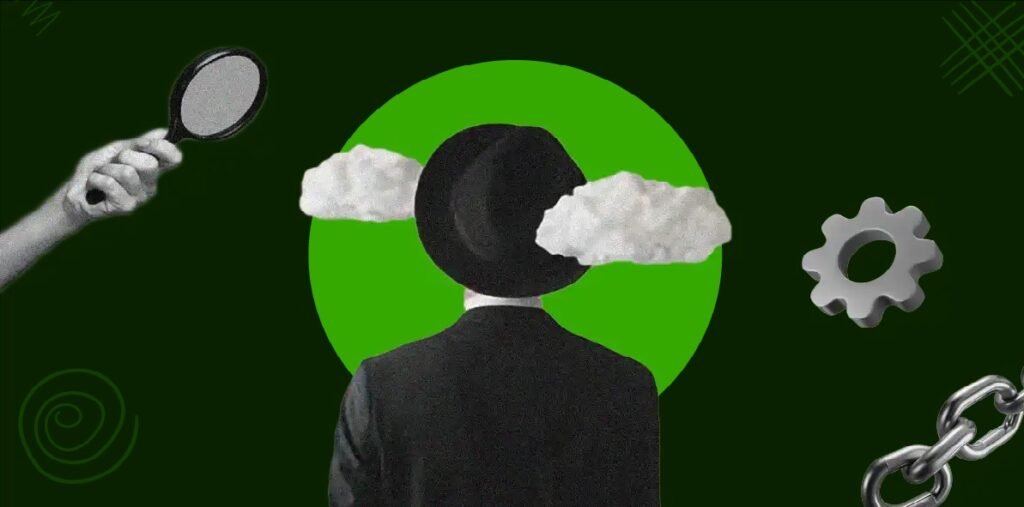
How to Safe Black Hat SEO in 2025: Risks and Best Practices
Black Hat SEO refers to unethical tactics used to manipulate search engine rankings. While these techniques may provide short-term gains, they pose significant risks, including website penalties and de-indexing by search engines like Google. Attempting to use Safe Black Hat SEO is a contradiction—these practices are inherently risky, and search engines in 2025 aggressively penalize them. Instead, focus on ethical strategies that deliver sustainable results. In this guide, we’ll discuss the dangers of Black Hat SEO and how to protect your website from penalties while maintaining strong search rankings through compliant methods.
Risks of Black Hat SEO in 2025
Before understanding how to stay safe, it’s essential to recognize the risks associated with Black Hat SEO:
- Google Penalties: Search engines continuously update their algorithms to detect unethical practices, leading to penalties or complete removal from search results.
- Loss of Organic Traffic: Websites using Black Hat techniques often experience sudden ranking drops, resulting in lost visitors and revenue.
- Reputation Damage: Unethical SEO practices can harm brand credibility, making it difficult to regain trust from users and search engines.
- Legal Consequences: Some Black Hat methods, such as content scraping or spammy link-building, may violate copyright laws or terms of service agreements.
Common Black Hat SEO Tactics to Avoid

To ensure your website’s safety, steer clear of these Black Hat techniques:
- Keyword Stuffing: Overloading content with keywords unnaturally to manipulate rankings.
- Cloaking: Showing different content to search engines and users.
- Private Blog Networks (PBNs): Creating networks of websites to manipulate backlinks.
- Hidden Text and Links: Using invisible text or links to deceive search engines.
- Buying Links: Purchasing backlinks instead of earning them organically.
- Duplicate Content: Copying content from other websites instead of creating unique, valuable content.
How to Stay Safe from Black Hat SEO in 2025
To rank well without penalties, follow these White Hat SEO best practices:
- 1. Focus on Quality Content
- Content remains king in SEO. Ensure your website offers informative, engaging, and original content that provides value to your audience.
- 2. Use Ethical Link-Building Strategies
- Instead of buying links, focus on building natural backlinks through guest posting, influencer outreach, and high-quality content that attracts organic shares.
- 3. Optimize On-Page SEO Properly
- Use relevant keywords naturally, optimize title tags and meta descriptions, and ensure your site is mobile-friendly and fast-loading.
- 4. Monitor and Audit Your SEO Regularly
- Use SEO tools like Google Search Console, Ahrefs, and SEMrush to track your website’s performance, detect harmful backlinks, and remove any Black Hat elements.
- 5. Stay Updated with SEO Guidelines
- Google frequently updates its algorithms. Stay informed about SEO best practices by following trusted sources like Google Search Central, Moz, and Search Engine Journal.
Understanding Black Hat SEO: What It Means in 2025
In 2025, Black Hat SEO remains a risky strategy that manipulates search engines through unethical tactics like keyword stuffing, cloaking, and link schemes. While some may search for Safe Black Hat SEO techniques, these methods still violate search engine guidelines and can lead to severe penalties, including site bans. Advances in AI and machine learning have made algorithms smarter at detecting such practices, proving there’s no such thing as Safe Black Hat SEO in today’s digital landscape. Businesses using these tactics risk losing credibility and long-term visibility in search results. To sustain growth, experts recommend focusing on White Hat SEO instead of chasing the myth of Safe Black Hat SEO—prioritizing user experience, quality content, and ethical optimization.
Common Black Hat Techniques Still Used Today: Why Safe Black Hat SEO Doesn’t Exist
Despite search engines’ advanced algorithms, some still use Black Hat SEO tactics like keyword stuffing, hidden text, and cloaking to trick rankings. Private blog networks (PBNs) and paid link schemes remain popular for artificially boosting backlinks, though they risk severe penalties. Click fraud and automated bot traffic are also used to inflate engagement metrics, deceiving search algorithms. Spun content and AI-generated gibberish (despite improvements in detection) are still employed to manipulate keyword rankings. However, these shortcuts often lead to long-term damage, including bans and lost organic traffic, making White Hat strategies the safer choice.
The Dangers of Black Hat SEO Tactics in 2025

In 2025, Black Hat SEO poses greater dangers than ever, as search engines like Google use AI-powered algorithms to swiftly detect and penalize manipulative tactics. Websites caught using these methods risk immediate deindexing, losing all organic traffic and revenue overnight. Beyond penalties, businesses face reputational damage, as users and competitors increasingly expose unethical practices. Even short-term gains are unsustainable, as modern algorithms continuously evolve to identify and nullify Black Hat tricks. Ultimately, the high risk of permanent bans makes White Hat SEO the only viable strategy for long-term success.
Google’s Latest Penalties and Algorithm Updates
In 2025, Google has intensified its crackdown on spam and manipulation with AI-driven updates like the “SpamBrain 4.0” algorithm, which detects and penalizes Black Hat tactics in real-time. Sites using cloaking, AI-generated gibberish, or toxic backlinks now face immediate deindexing, with manual reviews becoming rarer due to automation. The March 2025 “Quality Quest” update prioritizes EEAT (Experience, Expertise, Authority, Trustworthiness), burying low-value content deeper in search results. Repeat offenders risk domain-level penalties, wiping out entire websites instead of just individual pages. To stay safe, webmasters must focus on genuine user value, as Google’s systems now reward long-term credibility over shortcuts.
Best Practices to Avoid SEO Penalties in 2025

To stay compliant with search engine guidelines in 2025, prioritize creating high-quality content rather than searching for nonexistent Safe Black Hat SEO shortcuts that could jeopardize your site. Build organic backlinks through genuine outreach, as these white hat methods prove far more effective than any supposed Safe Black Hat SEO techniques. Regularly audit your site for technical issues, understanding that proper maintenance eliminates any need for Safe Black Hat SEO workarounds. Stay updated on Google’s algorithm changes to adapt your strategy proactively. Above all, adopt a sustainable approach—valuing authenticity over risky shortcuts—to maintain rankings without penalties.
How to Transition from Black Hat to White Hat Strategies
Shifting from Black Hat to White Hat SEO begins with auditing your current tactics—remove spammy backlinks, delete cloaked content, and disengage from manipulative practices. Focus on creating valuable, user-centric content that genuinely solves problems while naturally incorporating keywords. Build authentic relationships for quality backlinks through outreach, collaborations, and PR instead of paid schemes. Implement ethical technical SEO fixes like improving site speed, mobile optimization, and structured data markup. Finally, commit to long-term growth by aligning with search engine guidelines, as sustainable SEO delivers lasting results without penalties.
Tools and Resources for Ethical SEO Monitoring
Stay compliant with Google’s guidelines using tools like Google Search Console for real-time penalty alerts and Semrush or Ahrefs to audit backlinks – because there’s no such thing as Safe Black Hat SEO in 2025. Leverage Screaming Frog for technical SEO checks and Originality.ai to ensure content authenticity, as these ethical practices outperform any supposed Safe Black Hat SEO shortcuts. Platforms like Moz Pro offer actionable insights while PageSpeed Insights helps optimize user experience – proving you don’t need risky Safe Black Hat SEO tactics to rank well. For continuous learning, follow Google’s Webmaster Blog and trusted SEO communities like Search Engine Journal. These resources empower you to maintain ethical SEO while avoiding the dangers of Black Hat techniques.
Creating a Long-Term, Sustainable SEO Strategy
A successful long-term SEO strategy in 2025 starts with prioritizing high-quality, user-first content – the true alternative to chasing the illusion of Safe Black Hat SEO. Focus on technical excellence, ensuring fast load speeds and mobile optimization, because these white hat methods prove you don’t need Safe Black Hat SEO shortcuts to rank well. Build organic authority through genuine backlinks, as this sustainable approach outperforms any supposed Safe Black Hat SEO tactics. Leverage data-driven insights with tools like Google Analytics to refine your strategy continuously. Finally, stay adaptable—regularly update your approach based on algorithm changes to maintain lasting visibility and growth without risky shortcuts.
Conclusion
While some marketers might wonder about Safe Black Hat SEO options, the reality is Black Hat techniques may seem tempting for quick results, but the risks far outweigh any potential benefits. The concept of Safe Black Hat SEO is a myth – in 2025, search engines are smarter and stricter than ever, making it essential to adopt fully ethical SEO strategies instead. By focusing on quality content, natural link-building, and regular SEO audits, you can achieve Safe Black Hat SEO alternatives that actually work long-term without risking penalties. Stay safe by completely avoiding the false promise of Safe Black Hat SEO, follow White Hat practices instead, and watch your website grow sustainably.
FAQ
1. What is Black Hat SEO, and why is it risky in 2025?
Black Hat SEO refers to unethical tactics that manipulate search engines for quick rankings, such as keyword stuffing, cloaking, and spammy backlinks. In 2025, advanced AI algorithms (like Google’s SpamBrain) detect and penalize these methods faster than ever, risking site bans, traffic loss, and reputation damage.
2. What are the most common Black Hat SEO techniques still used today?
Despite stricter algorithms, some still use:
- Private Blog Networks (PBNs) – Fake backlink networks
- AI-generated spam content – Low-quality, keyword-stuffed articles
- Cloaking – Showing different content to users vs. search engines
- Link schemes – Buying or artificially inflating backlinks
3. What penalties can Google impose for Black Hat SEO in 2025?
Google’s 2025 updates (like “Quality Quest”) can:
- Deindex entire websites (remove them from search results)
- Demote rankings for months or permanently
- Flag domains as spam, hurting credibility
- Block ad revenue (for sites using Google Adsense)
4. How can I recover if my site was penalized for Black Hat SEO?
- Audit & remove toxic backlinks (use Google Search Console & Disavow Tool)
- Delete spammy content and replace it with high-quality, EEAT-aligned material
- Submit a reconsideration request to Google after fixing violations
- Shift to White Hat SEO (focus on user experience, organic links, and ethical optimization)
5. What are the best White Hat SEO alternatives in 2025?
- Create expert-level content (following EEAT guidelines)
- Earn natural backlinks through outreach and PR
- Optimize for Core Web Vitals (speed, mobile-friendliness, UX)
- Use AI responsibly (enhance content, not replace human expertise)
6. How can I stay updated on Google’s algorithm changes?
- Follow Google’s Search Central Blog
- Monitor SEO news from Search Engine Journal, Moz, or Ahrefs
- Use tools like Google Analytics & Search Console for real-time alerts




